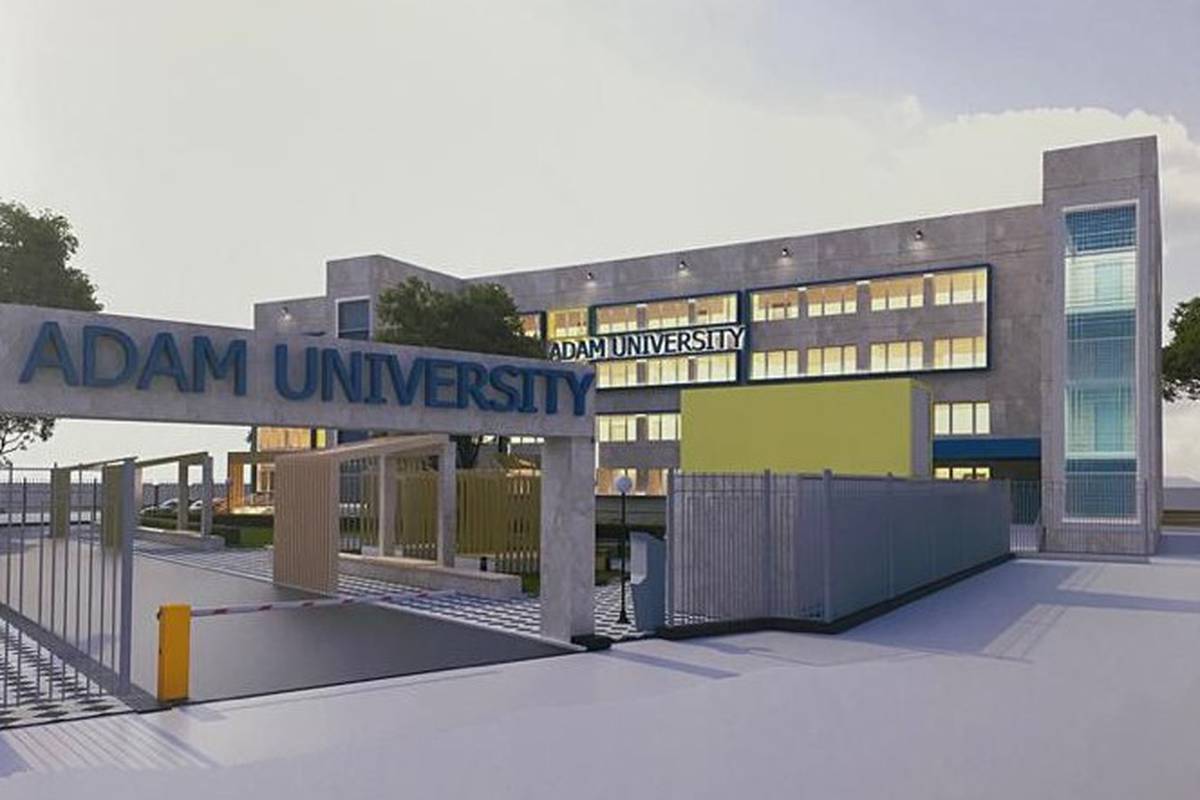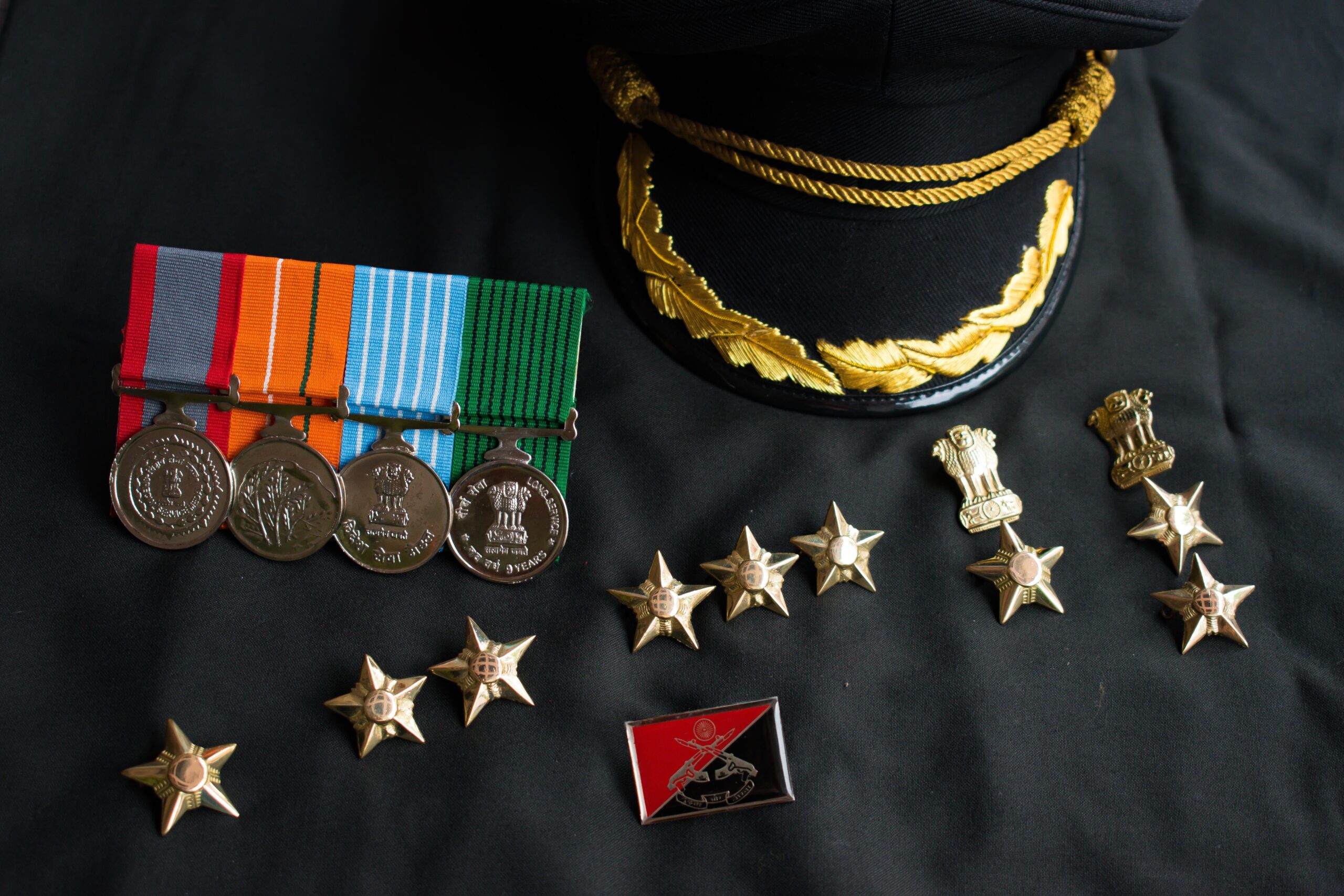
☝️ At a glance
- Obtain an MBBS from an accredited medical school and apply to institutes like AFMC to join the Indian Army, Navy, or Air Force.
- Military doctors serve in military hospitals, provide combat medicine, and receive basic military training, holding ranks like Lieutenant Colonel or Major.
- Salaries range from INR 60,000 to 80,000 per month, with benefits like housing, free medical care, and a stipend.
- Entry is via Permanent Commission (PC) or Short Service Commission (SSC) after a medical degree, exams, and interviews.
- Military doctors gain unique experience, financial benefits, prestige, and opportunities for specialization and post-service careers.
By becoming a military doctor you not only get to practice your passion for medicine but also blend it with your commitiment to your country. As a defense doctor, you'll be right there, taking care of soldiers, officers, and their families, ensuring they stay healthy and strong. Whether you're stationed in bustling military hospitals, out in combat zones, or in remote areas, the work you do will be both demanding and deeply rewarding.
In this guide, we’ll walk you through the steps to become a defense doctor in India. We’ll cover everything from the educational path and military training you’ll need, to what you can expect working in the Indian Army, Navy, and Air Force, and the unique benefits of a career in the defense forces.

Become a global doctor with MBBS abroad!
Studying abroad can be affordable and stress-free with futureMBBS:
- World-recognized universities with English-taught programs
- On-site support in partner university cities
- Guaranteed placements & internships for hands-on experience
From selecting universities and supporting you with the application process to orientation and finding accommodation – we are at your side.
Why become a military doctor in India?
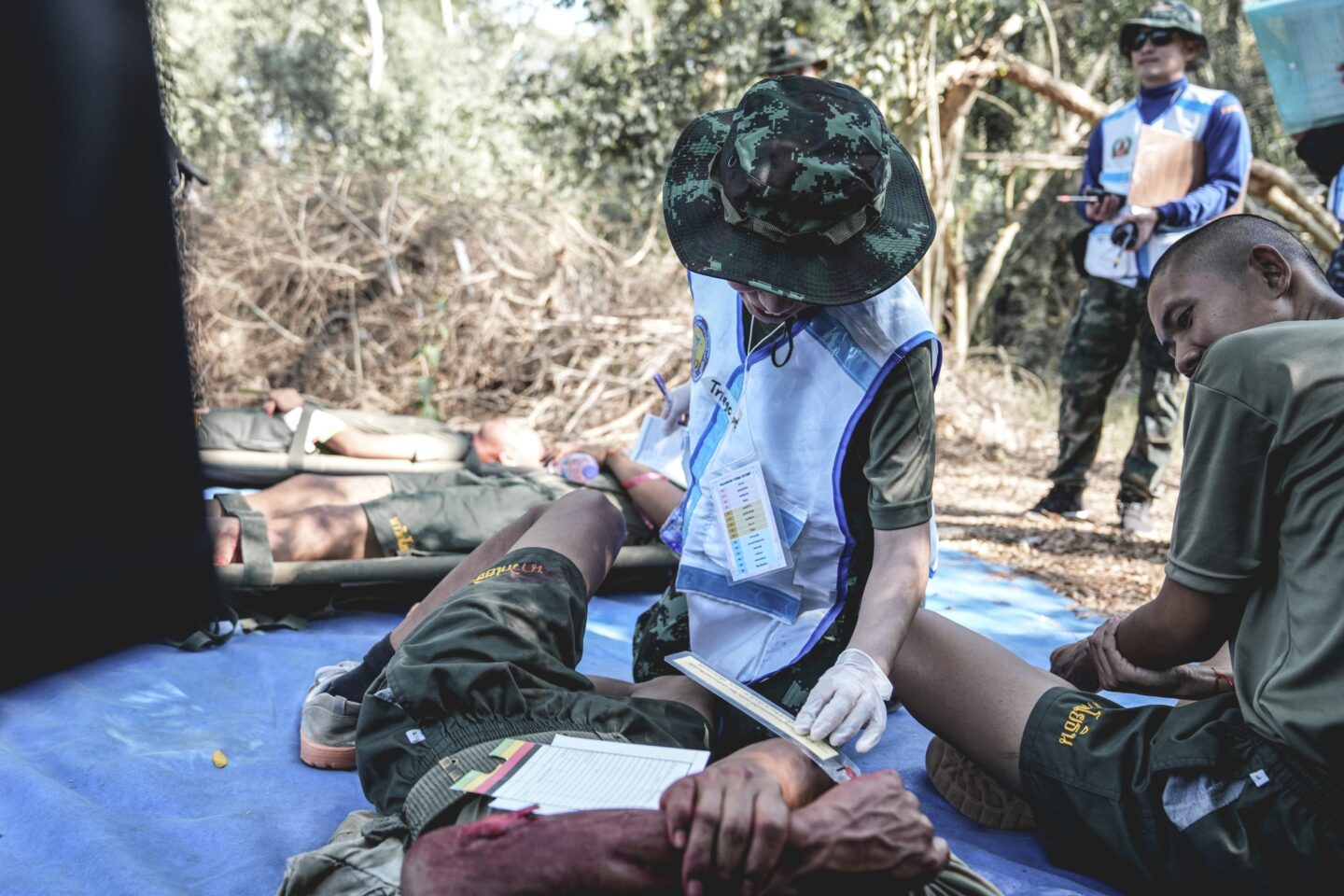
Becoming a defence doctor in India offers unique opportunities and benefits that go beyond a typical medical career. Here are some compelling reasons to pursue this path:
1. Financial benefits
Medical students aiming for a career in the military have access to programs like the Armed Forces Medical College (AFMC), which provides full tuition fees, stipends, and housing allowances.
In return for their commitment, students agree to serve in the Indian defense forces after graduation, which ensures job security and financial stability.
A major draw of this career path is the free medical care and allowances, including housing benefits. The Armed Forces Medical College (AFMC) covers tuition and provides a monthly stipend, making military medicine a financially attractive option. The final selection process ensures that only the most qualified candidates advance in this rewarding field.
2. Prestige and rank
Military doctors in India hold officer ranks, making them part of the prestigious Indian defense forces. Along with their duties as medical professionals, they receive the respect and benefits associated with being commissioned officers. These include gratis medical care, subsidized housing, pensions, and a competitive salary.
Doctors in the military service are considered part of the elite community, and being associated with the armed forcesadds to their reputation in the medical field. Military doctors also enjoy higher recognition within the defense forces, with opportunities to rise through the ranks.
3. Unique medical experience
As a defence doctor, you’ll gain experiences that are not typically available in the civilian sector. This could include working in combat situations, treating trauma cases in field hospitals, or handling specialized surgeries in military hospitals. You’ll also work with cutting-edge technology and equipment that is sometimes not accessible in civilian medical practice.
The military training prepares you to handle challenging and extreme situations, where you'll need to make quick medical decisions that could save lives. In this environment, you might deal with high-stakes medical emergencies, like combat injuries, infectious diseases, or post-traumatic stress disorder (PTSD).
4. Opportunity to serve the country
For many, the greatest motivation for becoming an defense forces doctor is the opportunity to serve the nation. You’ll be directly contributing to the well-being of soldiers who protect the country, and the job brings a sense of pride and fulfillment that is hard to match in other professions.
Military training gets you ready for tough and intense situations where fast medical decisions are crucial. In the Army and Air Force Medical Corps, you'll face high-pressure emergencies like combat injuries, infectious diseases, or PTSD. This hands-on experience in military medicine equips you to tackle critical challenges effectively.
5. Life after service: opportunities for retired military doctors
Many retired military doctors go on to have successful careers in the civilian healthcare sector. After completing their active duty, they can either practice in civilian hospitals or clinics or enter academia, research, or administration. The experience gained in the defense forces medical services is highly valued in the civilian world, and the leadership skills developed during their military careers make them excellent candidates for administrative roles in hospitals or healthcare institutions.

Study medicine abroad with 100% support!
futureMBBS offers full support to make your dream of studying medicine abroad a reality.
- Hassle-free admission guidance
- Fast-tracked visa processing
- Post-arrival support, including accommodation assistance
Educational path to becoming a military doctor in India
The process of becoming an defense forces doctor in India follows a structured path, similar to the civilian MBBS education track but with added military training and service obligations. Here are the key steps involved:
1. Earn a Bachelor’s degree (MBBS)
To become a military doctor, the first step is completing a bachelor’s degree in medicine, specifically an MBBS(Bachelor of Medicine and Bachelor of Surgery) from a recognized medical college in India. Aspiring military doctorsoften aim for institutions like AFMC in Pune, which is known for its top-tier medical education and direct link to the Indian defense forces.
Candidates must first complete their schooling (preferably with a focus on the sciences—biology, chemistry, and physics), pass their 10+2 examinations, and meet the minimum eligibility criteria to appear for medical entrance exams like NEET (National Eligibility cum Entrance Test).
2. Qualify NEET exam

To gain admission to medical colleges in India, you must clear the National Eligibility cum Entrance Test (NEET). This is a competitive entrance exam that tests your knowledge in subjects like biology, chemistry, and physics. A high score in NEET increases your chances of gaining admission to top medical colleges, including AFMC. With NEETsheet by futureMBBS you are assured of high quality preparation from India's best EdTech teachers to help you get a top rank!
AFMC offers an outstanding program for aspiring military doctors. However, the number of seats is limited, making the competition intense. Only those with exceptional academic credentials and physical fitness are selected to enter this prestigious institution.
3. Apply to Armed Forces Medical College (AFMC)
If you’re specifically aiming to become a military doctor, the best route is to apply for admission to the Armed Forces Medical College (AFMC), Pune. AFMC is the premier institution for military clinical education in India and offers full scholarships to students in exchange for a mandatory service commitment in the Indian defense forces after graduation.
AFMC offers a structured and comprehensive education program, which combines both medical training and military training. The application process for AFMC includes a written test, followed by interviews, medical fitness tests, and psychological evaluations. AFMC students are trained in both medicine and military disciplines, ensuring they are prepared for their roles as officers in the defense forces.
4. Complete MBBS degree
The MBBS degree takes around 4-5 years to complete, and the curriculum covers a broad range of medical subjects, including anatomy, physiology, biochemistry, pathology, and clinical rotations in various specialties. AFMC students receive training tailored to their future roles in military hospitals and field operations, preparing them for the unique challenges of military medicine.
After the academic and clinical training is completed, candidates undergo internships to gain practical experience in different departments such as general surgery, pediatrics, obstetrics and gynecology, and emergency medicine. During this time, students are assessed on their performance in real-world medical scenarios, which helps prepare them for the demanding situations they will face as military doctors.
5. Military training and commission
Upon completing your MBBS degree from AFMC or another recognized medical institution, you’ll need to undergo military training. This is mandatory for all future military doctors and includes both physical and mental preparation. This training is crucial for adapting to the military environment and understanding the rigors of military life.
The training involves fitness exercises, drills, and understanding the military structure and discipline. Military doctorsneed to be fit, agile, and prepared to serve in combat conditions if required. Basic military training also familiarizes doctors with the equipment, communication systems, and logistics needed in combat zones.
After completing military training, you are commissioned as an officer in one of the branches of the Indian defense forces—either the Army, Navy, or Air Defence Force—and begin your career as a military doctor.
6. Postgraduate specialization (optional)
After becoming a military doctor, you may choose to pursue further specialization through postgraduate programs. The Indian defense forces encourage doctors to gain expertise in various medical fields and often offer opportunities for advanced training and education.
Doctors who specialize may become experts in areas such as orthopedics, radiology, cardiology, or trauma care, among others. Such specialization not only enhances career prospects but also opens up new opportunities within the defense forces.
What do military doctors do in the Indian defense forces?
Military doctors perform a wide range of duties, and their responsibilities depend on their branch of service and the environment in which they are working. Here are the key roles and responsibilities:
1. Provide healthcare in military hospitals
Most military doctors in India work in military hospitals or field hospitals. These doctors provide healthcare services to military personnel, their families, and veterans. The scope of medical services includes routine healthcare, specialized medical treatments, surgeries, and trauma care.
Doctors posted in military hospitals handle daily outpatient cases, monitor chronic illnesses, and conduct surgeries, providing comprehensive care to their patients.
2. Combat medics
Military doctors working as combat medics provide urgent medical care in the field, often in conflict zones or during military operations. They are responsible for stabilizing injured soldiers and managing life-threatening situations. Combat medics play a crucial role in saving lives during military operations.
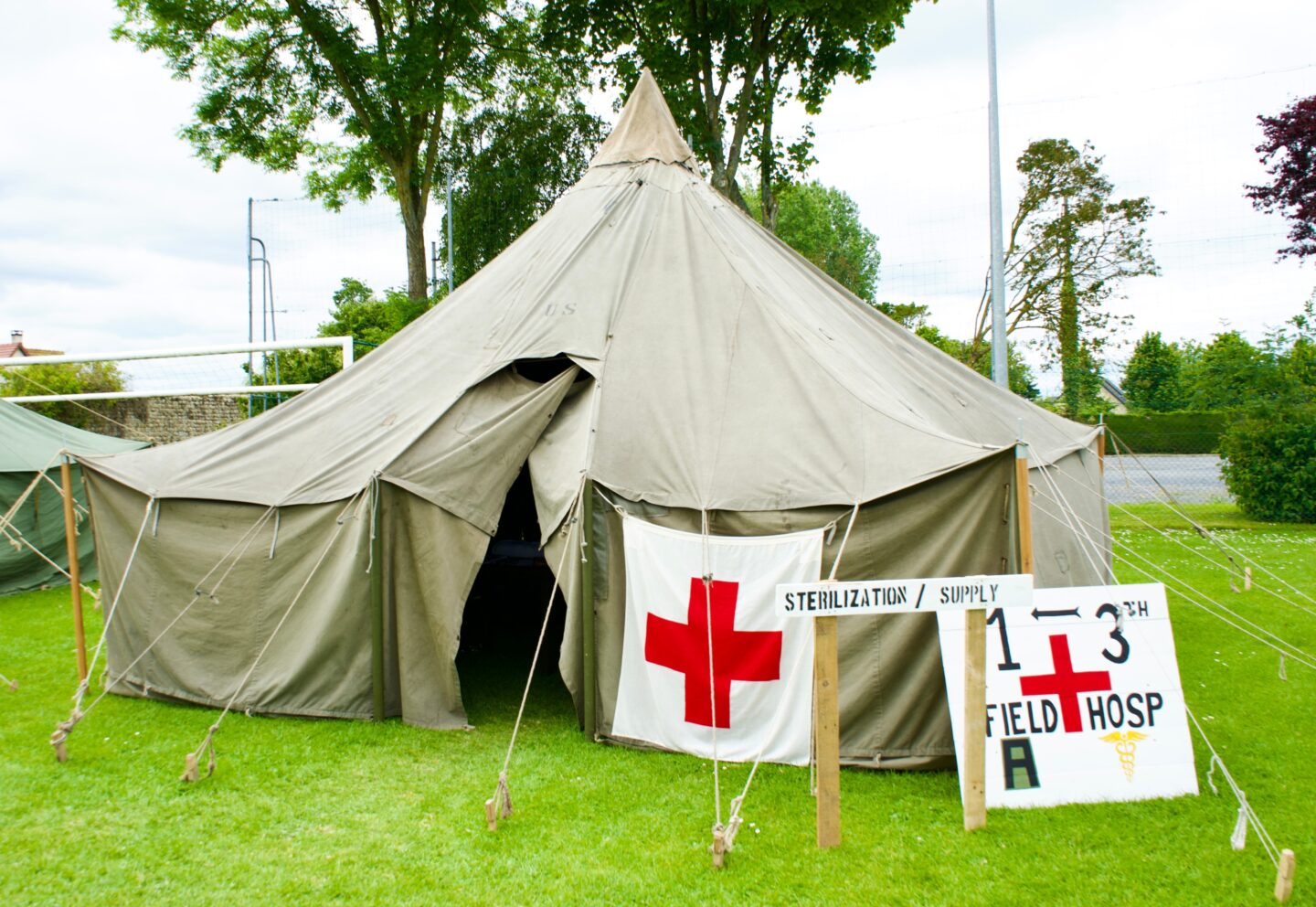
These doctors are trained to work under stressful conditions, making quick decisions and providing essential care even in the most challenging environments. Combat medics often collaborate with army doctors and paramedics in field hospitals to treat the wounded in real-time combat situations.
3. Training and mentoring medical corps
Senior military doctors are also responsible for training and mentoring the next generation of military officers in the medical corps. They provide guidance, supervise medical training, and ensure that young officers are well-prepared for the challenges ahead.
In this role, doctors work closely with their juniors, helping them understand the unique requirements of military medicine, providing leadership, and offering practical medical advice in complex situations.
Recruitment process: Permanent Commission vs Short Service Commission
Military doctors can enter the Indian defence forces through two main paths of recruitment channels—Permanent Commission (PC) and Short Service Commission (SSC).
1. Permanent Commission (PC)
A Permanent Commission allows doctors to serve in the Indian defence forces until they retire. This is a long-term career option, and doctors joining the armed forces medical services through AFMC are typically offered permanent commissions. Doctors who serve under a PC benefit from better retirement benefits, promotion opportunities, and long-term job security.
Half of the graduates from AFMC are offered Permanent Commission after completing their medical training. This is the more prestigious and sought-after form of service, as it allows for a lifelong career in the defence forces.
2. Short Service Commission (SSC)
A Short Service Commission (SSC) offers doctors the opportunity to serve in the defence forces for a shorter, fixed duration—usually 5 years, with an option to extend up to 14 years. Doctors from civilian medical colleges are generally recruited under SSC, and this path is popular among those who want to experience military life for a limited time.
For those interested in a more flexible service duration, the SSC is an excellent option. SSC doctors may apply for a permanent commission if they wish to extend their military career beyond the stipulated term.
Eligibility criteria to become a military doctor in India
To become a military doctor in India, you must meet the following eligibility criteria:
Indian citizenship: Only Indian citizens are eligible to become military doctors in India.
Medical qualification: You must hold an MBBS degree or equivalent medical qualification recognized by the NMC. Graduates from accredited medical schools or foreign medical schools with NMC recognition are eligible to apply.
Physical fitness: Candidates must pass the medical examination conducted by the armed forces medical board to ensure they meet the physical fitness requirements for military service.
Age limit: The age limit for SSC doctors is 30 years for MBBS graduates and 35 years for those with postgraduate medical degrees.
Physical examination: Candidates must pass a comprehensive physical examination conducted by the defence forces to ensure they meet the required fitness standards.
Medical registration: You must be registered with the National Medical Council (NMC) or any of the state medical councils to practice medicine in India.
Recruitment for Army, Navy, and Air Force: Pathways to Different Branches
The Indian defence forces have specific recruitment processes for doctors in the Army, Navy, and Air Defence Force.
1. Indian Army
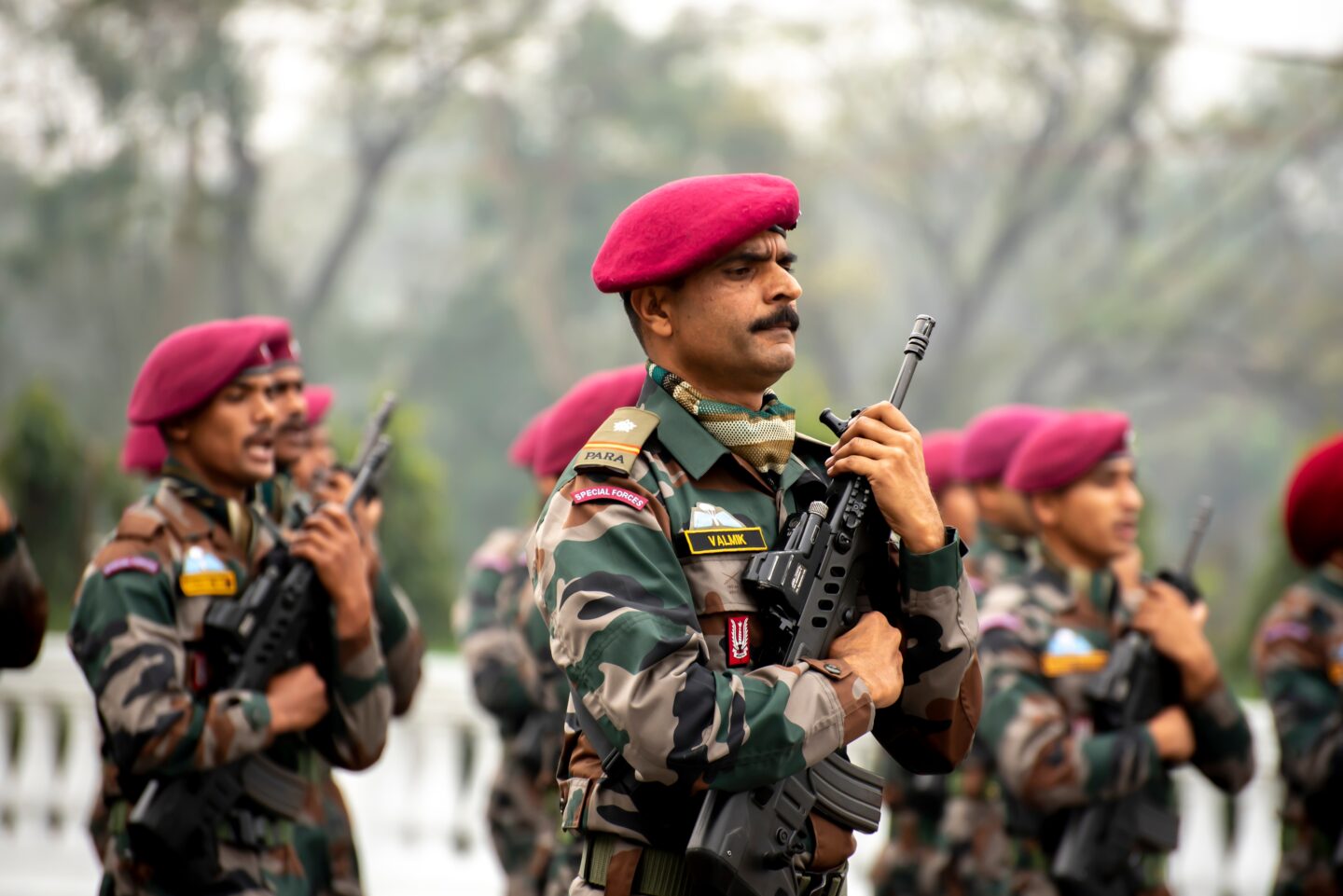
Doctors in the Indian Army provide medical care to soldiers during both peacetime and wartime. They are often stationed in remote locations or deployed to combat zones during military operations. Army doctors also work in army hospitals and provide medical care to the families of soldiers and veterans.
The Indian Army is known for its diverse operations, and its doctors need to be prepared to work in various environments, from field hospitals in conflict zones to specialized military medical facilities.
2. Indian Navy
Doctors in the Navy work on board naval ships and at naval bases, providing healthcare to sailors and officers. The Navy often conducts missions in extreme conditions, such as deep-sea deployments or rescue operations during natural disasters. Navy doctors are trained to handle medical emergencies in these unique environments.
Serving as a doctor in the Navy involves long stints away from land, and doctors must be prepared to manage illnesses, injuries, and surgeries in confined spaces with limited resources.
3. Indian Air Force
Doctors in the here are responsible for maintaining the health of pilots, aircrew, and ground personnel. They provide medical care in Air defence hospitals and during aero-medical evacuations. The unique nature of Air defence force operations means that doctors must be familiar with the physical and mental challenges faced by personnel operating at high altitudes or in high-pressure environments.
Air defence force doctors are often stationed at air bases and are responsible for overseeing the medical fitness of pilots and aircrew, ensuring they meet the physical requirements for flying.
Rank, salary, and benefits of military doctors in India
Military doctors in India enjoy excellent salaries, benefits, and allowances, comparable to or even better than their civilian counterparts.
1. Rank Structure
Upon joining the Indian Armed Forces, doctors are given ranks that are equivalent to those of other commissioned officers. For example:
- Captain/Flight lieutenant/Lieutenant: Fresh graduates who have completed their MBBS.
- Major/Squadron leader/Lieutenant commander: Doctors with a few years of experience or who have completed postgraduate training.
- Colonel/Group captain/Captain (Navy): Senior military doctors with considerable experience and higher qualifications.
2. Salary
The salary of military doctors in India depends on their rank and experience. The starting salary for a fresh graduate (ranked Captain or equivalent) is between INR 60,000 to 80,000 per month, excluding additional allowances.
3. Benefits
Military doctors are entitled to a wide range of benefits, including:
- Housing allowance: Officers are provided with subsidized or free housing in military quarters.
- Free medical care: Comprehensive healthcare for doctors and their families.
- Pension: After retirement, doctors receive a pension and other post-retirement benefits.
- Travel and accommodation: Subsidized travel for the doctor and their family within India.
4. Opportunities for postgraduate education and specialization
Military doctors have the opportunity to pursue postgraduate medical education in India or abroad, often fully funded by the government. This allows them to specialize in various fields like cardiology, orthopedics, neurology, and more.
Life as a military doctor: challenges and rewards
Life as a military doctor in India presents both tough challenges and remarkable rewards. You might find yourself stationed in remote areas, away from loved ones, or in the middle of intense situations. Physical and mental demands are high as you juggle military duties with medical responsibilities.
Yet, the rewards are profound. Invaluable experience is assured in trauma care and emergency medicine, as you handle critical cases in high pressure environment. The satisfaction of serving your country shall fill not only your chest with pride but also of those around you like family, friends and countrymen alike. This is more than just a job—it’s a calling that blends professional growth with a meaningful sense of purpose.
Conclusion: A fulfilling career as a military doctor in India
If you're looking not just to choose a career but to make a profound commitment to serve your country with both heart and skill then becoming a military doctor in India is for you.It’s a path where you’ll blend top-notch medical training with the demanding, yet fulfilling, challenges of military life.
Moreover, unmatched rewards like competitive salaries, great benefits, and the honor of wearing the uniform with pride shall come hand in hand with a deep sense of duty and new experiences. It's not just a job; it’s a calling that merges your professional skills with a meaningful purpose.
As you start on this journey, remember that futureMBBS is here to guide you every step of the way and with NEETsheet you are sure to get your dream college to become a a top notch doctor. Our commitment is to help you succeed, combining our expertise with your dedication to medicine and service.
Your medical career abroad starts here!
Thinking of pursuing MBBS abroad? Don’t just dream it, do it!
Start your MBBS journey!FREQUENTLY ASKED QUESTIONS
FAQs about "how to become a military doctor in India?"
What is the best way to become a military doctor in India?
The best way is to join AFMC, Pune after clearing NEET, providing medical education and a direct path into the Indian Armed Forces.
Can I become a military doctor with a civilian MBBS degree?
Yes, you can join through Short Service Commission (SSC) after completing MBBS from a civilian medical college.
What is the duration of service for military doctors?
Service can be through Permanent Commission (until retirement) or Short Service Commission (5 to 14 years).
What rank do military doctors hold?
Fresh MBBS graduates start as Captain in the Army or equivalent ranks in the Navy and Air defence Force.
What is the salary of a military doctor?
Starting salaries range from INR 60,000 to 80,000 per month, plus allowances.


